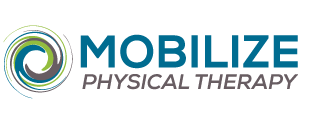Working out and daily exercise does wonders for our body in staying healthy. Too often, we feel drained after workouts and struggle to perform the tasks required for our jobs or taking care of the family. How do you balance staying healthy with exercise and staying functional with the daily demands we face?
Nutrition can be that missing link to recharge your battery after “depleting” energy from a workout. There is so much out there with dieting and workouts, how do you know what is best or where to start?
There are many theories and preferences depending on goals and dietary restrictions for individuals, but if you are looking to start simple, here are some tips to improve your energy levels for the rest of your day or give you the energy needed for a late night workout.
- Protein: To maintain or gain muscles to stay strong, you need to build up what you intend to use. Protein intake throughout the day will keep you from taking energy from your muscles and intake after working out will help rebuild what you used for recovery. *General rule for intake: 0.8 g per kg of body weight, ~10-35% of daily intake.
This is a standard calculation for a moderately active individual. Depending on your workout intensity, duration, and goals, this number may increase to varying amounts.
- Carbohydrates: To maintain energy throughout the day and not take from our muscles, carbohydrates (carbs) become important for immediate energy usage. It takes longer for our body to break down protein and fats, therefore, carbs are important to sustain energy while other energy sources are depleted or to “save” protein for muscle gains.
*General rule for intake: ~45-64% of daily intake.
- Fats: Our bodies need fats! Many structures throughout our system run off fats, such as the brain. The key is to take in “healthy” fats. These products will be high in “polyunsaturated” and lower in “saturated” fats with minimal to no trans-fats.
*General rule for intake: ~20-35% of daily intake.
These recommendations are established and supported by the government and can be found with additional information at health.gov. Other resources are available at sites like choosemyplate.gov that are often used to assist in understanding balanced meal planning and suggestion for good nutrient-based food. If you have concerns regarding dietary restrictions or intolerances, contact your physician or set up an appointment with a dietician to find the right plan for you!
Stay active and Stay healthy! If you need assistance on the exercise part of health, we would love to help. Set up an appointment at mobilizept.com or call at 206-402-5483 and take a step forward toward holistic health.


